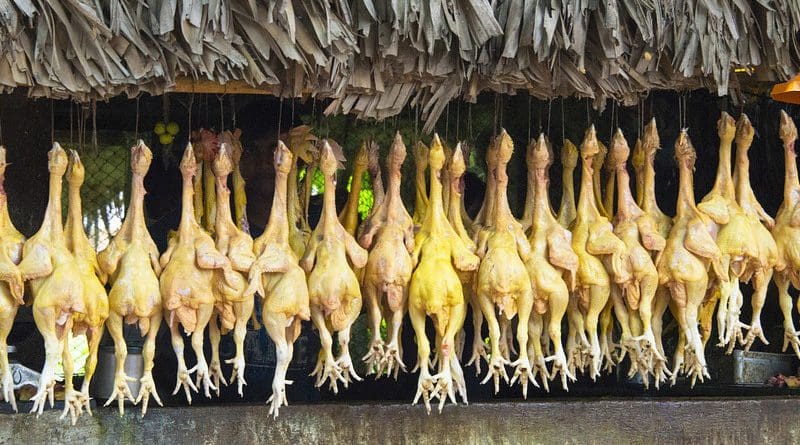Recruitment Of Healthcare Workers Key To Battling Complex Emergencies – Analysis
Now that bird flu and the associated culling of migratory birds is occurring in parts of India, we can add this disease to the toxic mix of pathogens currently on the loose around the world. Ebola has also reappeared in Africa on top of the coronavirus pandemic. Climate change is adding to the mix, with extreme temperature and polar vortexes. What has occurred in Texas, with freezing temperatures and grid-wide electrical power failure, has forced the state to declare a public health emergency on top of the pandemic. This is a unique combination of events that means there needs to be a refocus on complex emergency responses.
But first there has been a new outbreak of the reoccurring bird flu. India last month began to cull tens of thousands of poultry birds after avian influenza was detected in ducks, crows and wild geese in at least a dozen locations across the country. The Ministry of Fisheries, Animal Husbandry and Dairying is urging states to take measures to avoid any further spread of the disease. Kerala ordered the culling of more than 38,000 poultry birds after reports of dead birds infected with the disease emerged from several districts. The economic impact is notable, as is the effect on food security. When culling birds, their eggs must also be destroyed.
Other countries in Asia have also experienced outbreaks of bird flu this winter. In November, hundreds of thousands of chickens were culled in Japan after cases were detected in poultry. This included a farm in the city of Hiroshima, which culled 134,000 chickens after avian flu was detected for the first time on its premises since 2004. Most cases of human bird flu infections are due to contact with infected poultry or surfaces that are contaminated. Sound familiar?
Meanwhile, Ebola’s re-emergence in two different parts of Africa is being addressed quickly by medical officials and practitioners on the ground. Guinea started an Ebola vaccination campaign on Tuesday, the World Health Organization (WHO) said, as authorities race to contain the first resurgence of the virus there since the world’s worst outbreak in 2013-2016. Vaccine inoculations against Ebola have been given to healthcare workers. Importantly, the vaccination uses the ring strategy, whereby all people who have come into contact with a confirmed Ebola patient are given the vaccine, as well as front-line and health workers. The good news is that, during the last Ebola outbreak, vaccines were under development. Now there is expertise and experience with safe and effective vaccines.
Research shows there is a natural transition of the Ebola virus involving certain species of forest-dwelling fruit bats. These act as a reservoir for the virus in nature and this cycle is continuous, ensuring that the pathogen is maintained. The virus may, however, spill over from its natural reservoir either to other forest-dwelling animals or directly to humans to set off an epidemic in the human population. One feature that sets the current outbreak apart is that it is happening against the backdrop of the coronavirus pandemic, which has healthcare and other resources around the globe under severe pressure.
What about the coronavirus disease (COVID-19) and its mutations? Are the same issues occurring now but with another disease vector? Combined with today’s other problems in society, across a range of violence and economic stagnation, there is a complex emergency that needs addressing.
The current thinking on complex emergencies is dominated by humanitarian literature that debates and advocates interventions into crises and largely focuses on the complexity of responses. Despite the fact there are several definitions of complex emergencies, characteristics consistently emerge across the response-based literature focusing on conflict, warfare and civilian risk. This is noble and important work. However, in a world where pathogens are affecting the way we live and interact, the wider issues of a global complex emergency of a different type emerge. This conflation of events means that, in many countries, the layering of such affairs gives urgency to the need to create job opportunities in the medical sector.
While earlier concepts concerned the occurrence and duration of civil wars and other violence, the emergence of many diseases at once multiplies the challenge. The changing patterns of violence that turn urban areas into war zones suggest that addressing disease spread and instability issues, such as food insecurity and environmental degradation, become second nature during epidemics.
The main concept is to have more able-bodied individuals acting as medical practitioners and being aware of the complex emergency around them. The complex emergency is one in which disease surveillance is half the battle against so many other afflictions and conditions. In that way, being prepared and growing the ranks of healthcare professionals is a civic duty.

